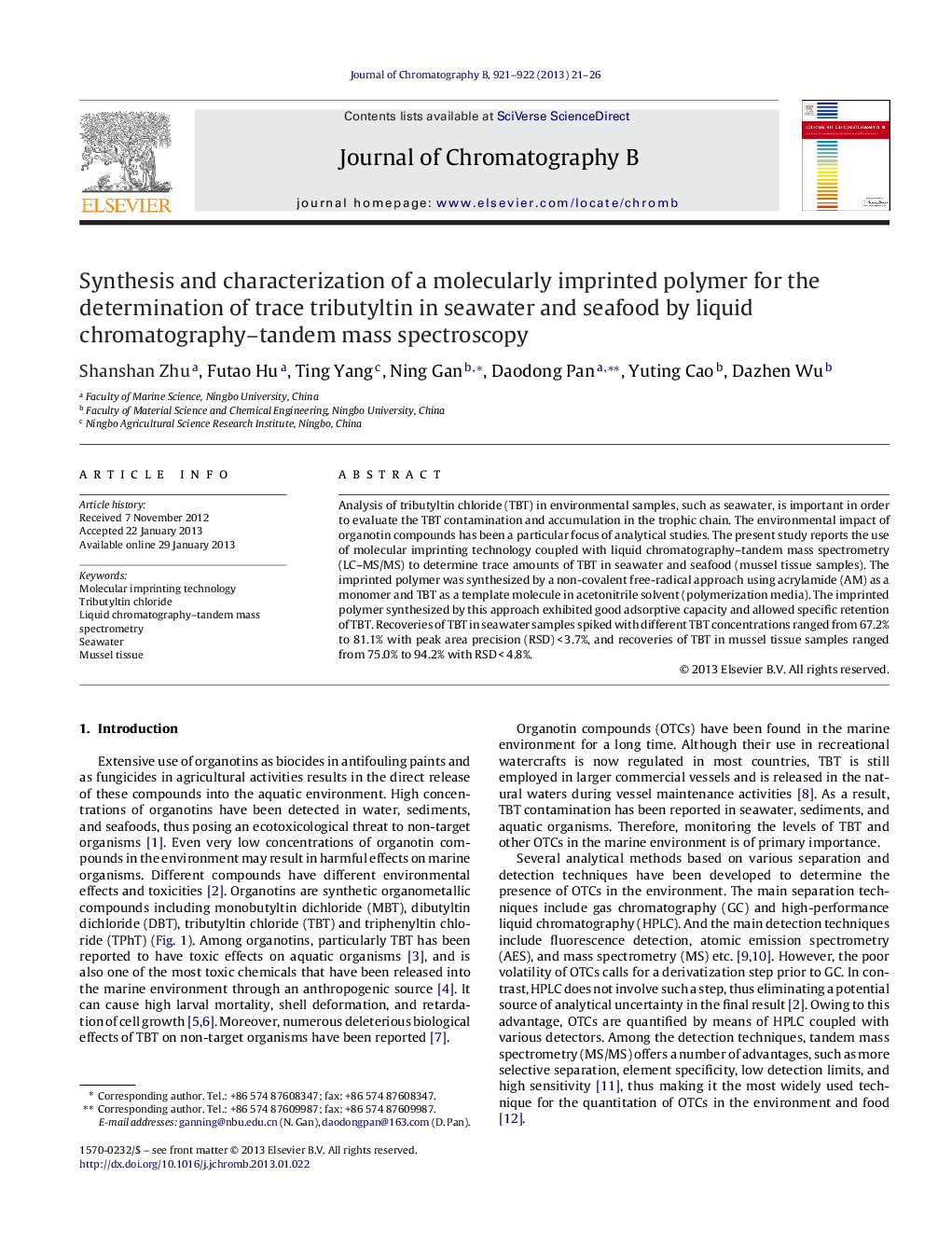| Article ID | Journal | Published Year | Pages | File Type |
|---|---|---|---|---|
| 1212802 | Journal of Chromatography B | 2013 | 6 Pages |
Analysis of tributyltin chloride (TBT) in environmental samples, such as seawater, is important in order to evaluate the TBT contamination and accumulation in the trophic chain. The environmental impact of organotin compounds has been a particular focus of analytical studies. The present study reports the use of molecular imprinting technology coupled with liquid chromatography–tandem mass spectrometry (LC–MS/MS) to determine trace amounts of TBT in seawater and seafood (mussel tissue samples). The imprinted polymer was synthesized by a non-covalent free-radical approach using acrylamide (AM) as a monomer and TBT as a template molecule in acetonitrile solvent (polymerization media). The imprinted polymer synthesized by this approach exhibited good adsorptive capacity and allowed specific retention of TBT. Recoveries of TBT in seawater samples spiked with different TBT concentrations ranged from 67.2% to 81.1% with peak area precision (RSD) < 3.7%, and recoveries of TBT in mussel tissue samples ranged from 75.0% to 94.2% with RSD < 4.8%.
► Imprinted polymer with acrylamide as monomer for adsorbing tributyltin chloride. ► High retention capacity and selectivity for this adsorbent. ► Developing a new analysis approach by coupling this polymer to LC–MS/MS.
